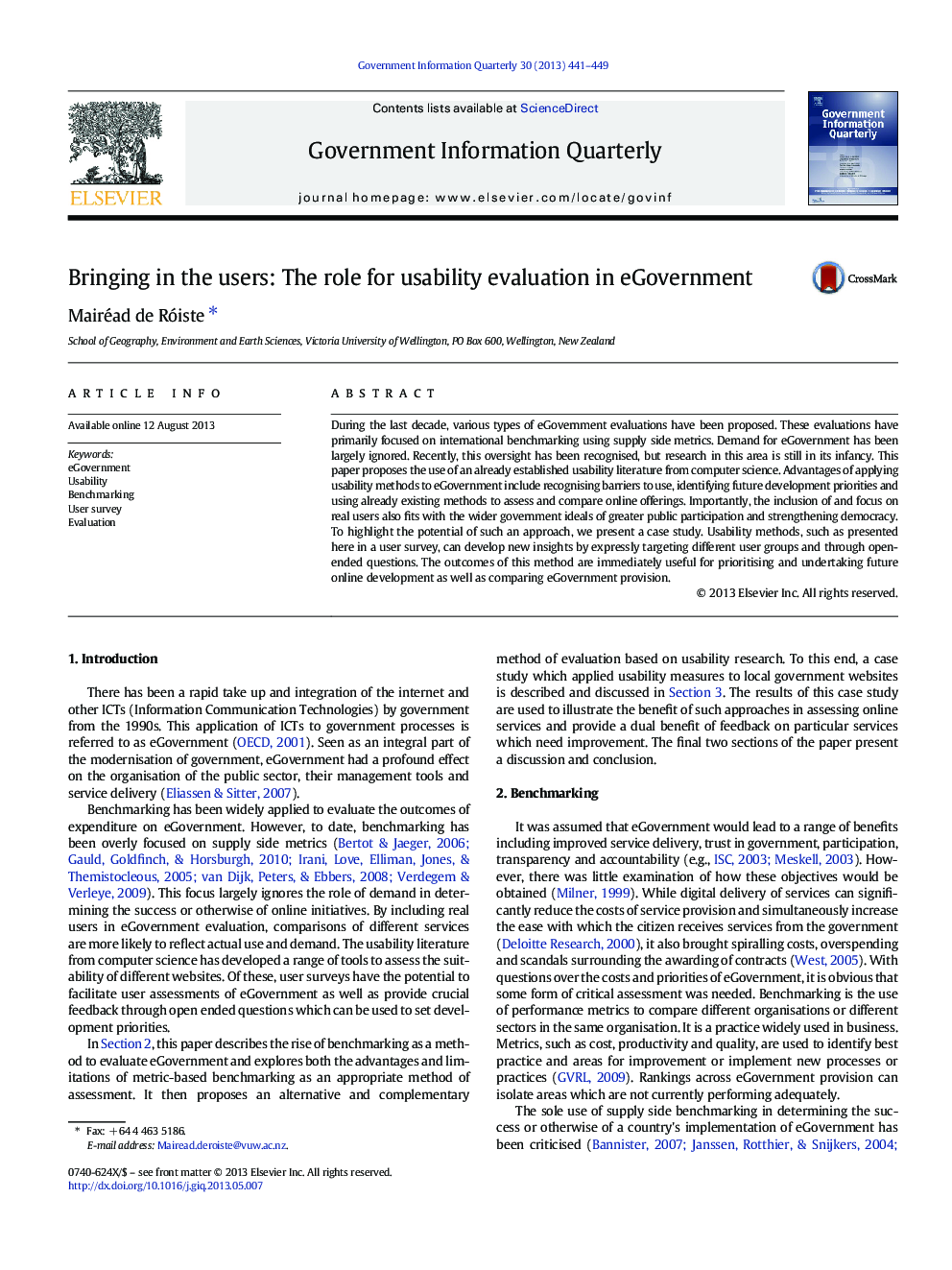| Article ID | Journal | Published Year | Pages | File Type |
|---|---|---|---|---|
| 1024317 | Government Information Quarterly | 2013 | 9 Pages |
•Usability evaluation can aid both service comparison and eGovernment development.•Usability measures with real users address limitations of supply side benchmarking.•User awareness allows developers to tailor online services promoting take up.•Information gained through flexible user surveys and potential uses is highlighted.
During the last decade, various types of eGovernment evaluations have been proposed. These evaluations have primarily focused on international benchmarking using supply side metrics. Demand for eGovernment has been largely ignored. Recently, this oversight has been recognised, but research in this area is still in its infancy. This paper proposes the use of an already established usability literature from computer science. Advantages of applying usability methods to eGovernment include recognising barriers to use, identifying future development priorities and using already existing methods to assess and compare online offerings. Importantly, the inclusion of and focus on real users also fits with the wider government ideals of greater public participation and strengthening democracy.To highlight the potential of such an approach, we present a case study. Usability methods, such as presented here in a user survey, can develop new insights by expressly targeting different user groups and through open-ended questions. The outcomes of this method are immediately useful for prioritising and undertaking future online development as well as comparing eGovernment provision.
